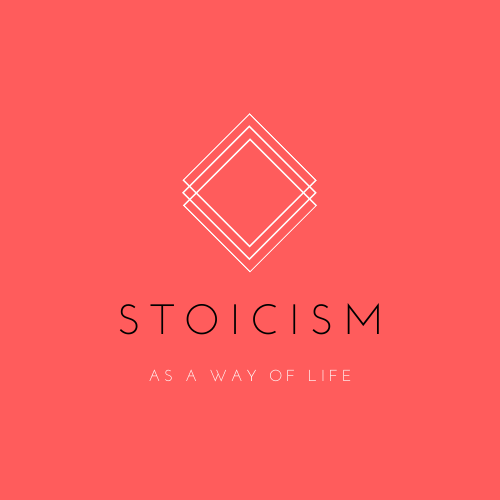Stoicism as a Way of Life Pt. 2

How do you practice stoicism throughout your daily life? While the stoic philosophers we mentioned in Part 1 left us with some insight in this area, incorporating other self-help frameworks that align with stoicism’s ideals can offer us a more practical guidebook to living “the stoic way.”
One framework worth considering is The Four Agreements, first described by authors Don Miguel Ruiz and Janet Mills in their 1997 book. Another book, titled The Fifth Agreement, furthered their theories when published in 2010.
According to the Agreements, all of our actions and behaviors are based on hidden agreements we’ve made with ourselves, other people, and with life itself. These agreements are expressed as deep beliefs ingrained at an early age that define the borders for us as to what is or is not possible. Without thought and intention, some of the agreements we make can be self-limiting and self-defeating, so the authors of the Agreements propose five healthy versions meant to help people live a virtuous life and meet their full potential.
In studying the Agreements, we can see that many of them overlap with tenets of stoicism.
1. Be impeccable with your word.
“The chief task in life is simply this: to identify and separate matters so that I can say clearly to myself which are externals not under my control, and which have to do with the choices I actually control. Where then do I look for good and evil? Not to uncontrollable externals, but within myself to the choices that are my own…”
— Epictetus
“Better to trip with the feet than the tongue.”
— Zeno
Epictetus taught us that the heart of the stoic philosophy is the concept that many matters are outside of our control, except our choices, which are fully within our control. Our word then is a powerful tool, because not only is it something within our control, but it’s how we communicate to others what our intentions are and tell them what to expect from us. At its core, our word and how we use it is one of the most important ways we interact with others in the world.
If he were alive today, Epictetus would surely agree with the authors of the Four Agreements that being impeccable with your word is a commitment to take seriously. He might also point out that keeping our word in matters concerning ourselves is just as important as keeping it when dealing with other people.
Over-promising, under-delivering, and generally not following through will not only earn you a poor reputation, but it will cause you to lose respect for yourself and compromise your own values. In order to live virtuously then, it’s incredibly important that we take great care with how we use our word and ensure we keep our commitments.
2. Don’t take anything personally.
“Don’t take anything personally. Nothing others do is because of you. What others say and do is a projection of their own reality, their own dream. When you are immune to the opinions and actions of others, you won’t be the victim of needless suffering.
— Don Miguel Ruiz
“Someone despises me. That’s their problem. Mine: not to do or say anything despicable. Someone hates me. Their problem. Mine: to be patient and cheerful with everyone, including them. Ready to show them their mistake. Not spitefully, or to show off my own self-control, but in an honest, upright way.”
— Marcus Aurelius
“When people injure you, ask yourself what good or harm they thought would come of it. If you understand that, you’ll feel sympathy rather than outrage or anger. Your sense of good and evil may be the same as theirs, or near it, in which case you have to excuse them. Or your sense of good and evil may differ from theirs. In which case they’re misguided and deserve your compassion. Is that so hard?”
— Marcus Aurelius
“You don’t have to turn this into something. It doesn’t have to upset you.”
— Marcus Aurelius
3. Don’t make assumptions.
“‘If you seek tranquillity, do less.’ Or (more accurately) do what’s essential… Which brings a double satisfaction: to do less, better. Because most of what we say and do is not essential. If you can eliminate it, you’ll have more time, and more tranquillity. Ask yourself at every moment, “Is this necessary?” But we need to eliminate unnecessary assumptions as well to eliminate the unnecessary actions that follow.”
— Marcus Aurelius
“It is impossible to begin to learn that which one thinks one already knows.”
— Epictetus
4. Always do your best.
“Waste no more time arguing what a good man should be. Be One.”
— Marcus Aurelius
“If anyone can refute me—show me I’m making a mistake or looking at things from the wrong perspective—I’ll gladly change. It’s the truth I’m after, and the truth never harmed anyone.”
— Marcus Aurelius
“Be tolerant with others and strict with yourself.”
— Marcus Aurelius
“Remind yourself that your task is to be a good human being; remind yourself what nature demands of people. Then do it, without hesitation, and speak the truth as you see it. But with kindness. With humility. Without hypocrisy.”
— Marcus Aurelius
5. Be skeptical, but learn to listen.
“The first rule is to keep an untroubled spirit. The second is to look things in the face and know them for what they are.”
— Marcus Aurelius
“We have two ears and one mouth, therefore we should listen twice as much as we speak.”
— Zeno
“Nothing has such power to broaden the mind as the ability to investigate systematically and truly all that comes under thy observation in life.”
— Marcus Aurelius
“If you want to improve, be content to be thought foolish and stupid.”
― Epictetus

Comments